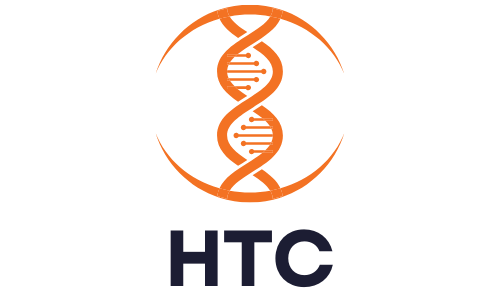Digital Therapeutics: A New Frontier for HealthTech Investors
Digital therapeutics (DTx) represent a transformative shift in healthcare, leveraging digital and online health technologies to treat medical and psychological conditions. Unlike traditional medications or treatments, DTx delivers therapeutic interventions directly to patients using software programs. These interventions are often prescribed by healthcare providers and can be used alone or in conjunction with other treatments.
The importance of DTx in the modern healthcare landscape cannot be overstated. As healthcare systems worldwide grapple with increasing costs and a growing burden of chronic diseases, digital therapeutics offer a cost-effective, scalable solution. They provide personalized treatment options, enhance patient engagement, and have the potential to improve health outcomes significantly. By harnessing data and technology, DTx can offer insights and real-time feedback, leading to more proactive and preventative care approaches.
This blog aims to explore the rise of digital therapeutics and its implications for investors. Understanding this burgeoning field can provide investors with insights into potential opportunities and the key factors driving growth. As DTx continue to evolve, they present a new frontier for healthtech investments, promising both financial returns and meaningful contributions to global health.
Understanding Digital Therapeutics
Digital therapeutics (DTx) are software-based interventions designed to prevent, manage, or treat medical conditions. These interventions utilize evidence-based, clinically evaluated technologies to deliver therapeutic content. DTx can take various forms, including mobile health apps, virtual reality programs, wearable devices, and online platforms. They aim to improve patient outcomes by offering tailored, interactive treatments that can be accessed anytime and anywhere, making healthcare more accessible and personalized.
Key Differences Between DTx and Traditional Therapies
While traditional therapies typically involve pharmaceuticals, medical devices, or face-to-face interventions, digital therapeutics leverage software and digital platforms to deliver care. Here are some key differences:
- Mode of Delivery: Traditional therapies often require physical interaction, such as taking medication or attending therapy sessions. In contrast, DTx deliver interventions through digital means, such as smartphone apps or online programs.
- Personalization: Digital therapeutics can offer highly personalized treatment plans based on real-time data and user interactions. Traditional therapies usually follow a one-size-fits-all approach.
- Accessibility: DTx can be accessed remotely, making it easier for patients to receive care regardless of their location. Traditional therapies often require patients to visit healthcare facilities.
- Engagement: Digital therapeutics use interactive features, gamification, and real-time feedback to keep patients engaged. Traditional therapies may lack these interactive elements.
- Data Utilization: DTx collects and analyzes data continuously, providing insights into patient behavior and treatment efficacy. Traditional therapies may not leverage data to the same extent.
Examples of Popular Digital Therapeutics Applications
Digital therapeutics have shown promise across various medical and psychological conditions. Some notable applications include:
- Management of Chronic Diseases: DTx are widely used to manage chronic conditions such as diabetes, hypertension, and asthma. For instance, mobile apps that track blood sugar levels and provide dietary recommendations help patients with diabetes maintain better control over their condition.
- Mental Health: Digital therapeutics have revolutionized mental health care by providing accessible and effective treatments for conditions like depression, anxiety, and PTSD. Apps offering cognitive behavioral therapy (CBT) exercises, mindfulness techniques, and mood tracking are popular examples.
- Addiction Treatment: DTx programs designed to support individuals struggling with addiction have gained traction. These programs often include features like behavioral therapy, support group access, and progress tracking, helping users stay committed to their recovery journey.
- Physical Rehabilitation: Virtual reality and mobile health apps are used in physical rehabilitation to guide patients through exercises, monitor their progress, and provide feedback. This can be especially beneficial for stroke survivors and individuals recovering from injuries.
- Sleep Disorders: Digital therapeutics targeting sleep disorders offer interventions like cognitive behavioral therapy for insomnia (CBT-I) through mobile apps. These programs help users develop healthy sleep habits and improve their sleep quality.
The scope and potential of digital therapeutics are vast, encompassing a wide range of conditions and patient needs. As technology continues to advance, the applications of DTx are likely to expand, offering even more innovative solutions for healthcare challenges.
The Rise of Digital Therapeutics
Historical Background and Evolution of DTx
The concept of digital therapeutics has evolved significantly over the past few decades. Initially, the focus was on simple health-related applications and online resources aimed at patient education and basic monitoring. However, with the advent of smartphones, wearable technology, and advances in software development, digital therapeutics have grown into sophisticated tools capable of delivering clinically validated treatments.
The early 2000s saw the emergence of health apps and the first forays into telemedicine. As technology matured, the 2010s marked a pivotal period for digital therapeutics with the integration of artificial intelligence (AI), machine learning, and big data analytics. These technologies enabled more personalized and effective interventions, laying the groundwork for today’s DTx solutions.
The COVID-19 pandemic accelerated the adoption of digital health technologies as healthcare providers and patients sought remote solutions to continue care. This period saw a surge in the development and usage of digital therapeutics, solidifying their place in modern healthcare.
Key Drivers of Growth in the DTx Market
Several factors have driven the rapid growth of the digital therapeutics market, transforming it into a promising sector for healthtech investors.
Advances in Technology (AI, Mobile Health Apps, Wearables):
Technological advancements have been a cornerstone of the digital therapeutics revolution. Artificial intelligence and machine learning algorithms enable the creation of highly personalized treatment plans by analyzing vast amounts of patient data. Mobile health apps have become ubiquitous, providing easy access to therapeutic interventions and health monitoring tools. Wearable devices, such as smartwatches and fitness trackers, continuously collect health data, allowing for real-time feedback and adjustments to treatment plans. These technologies together enhance the effectiveness, accessibility, and user engagement of digital therapeutics.
Increased Demand for Personalized Medicine:
The shift towards personalized medicine has fueled the growth of digital therapeutics. Traditional treatment approaches often fail to account for individual differences in genetics, lifestyle, and environment. Digital therapeutics, on the other hand, leverage data analytics to tailor interventions to each patient's unique needs. This personalized approach not only improves treatment outcomes but also increases patient adherence and satisfaction.
Shift Towards Value-Based Care:
Healthcare systems worldwide are transitioning from fee-for-service models to value-based care, which focuses on patient outcomes and cost-efficiency. Digital therapeutics align perfectly with this shift, offering cost-effective solutions that improve health outcomes. By providing continuous monitoring, personalized interventions, and patient education, DTx help reduce hospital readmissions, manage chronic conditions more effectively, and promote preventive care. This alignment with value-based care principles makes DTx an attractive option for healthcare providers and payers.
Regulatory Support and Approvals:
Regulatory bodies have recognized the potential of digital therapeutics and have begun to establish frameworks for their approval and integration into healthcare systems. In the United States, the Food and Drug Administration (FDA) has created pathways for the approval of digital health products, including digital therapeutics. These regulatory advancements provide a clear path to market for DTx products, ensuring their safety, efficacy, and reliability. Additionally, reimbursement policies are evolving to include digital therapeutics, further driving their adoption.
Market Overview and Trends
Current Market Size and Projections for Growth
The digital therapeutics (DTx) market has experienced remarkable growth over the past few years. As of 2023, the global market for digital therapeutics was valued at approximately $4 billion, with projections indicating it could surpass $13 billion by 2027. This rapid expansion is driven by increasing adoption among healthcare providers, patients, and payers, as well as significant advancements in technology.
Several factors contribute to these growth projections, including the rising prevalence of chronic diseases, the demand for cost-effective healthcare solutions, and a growing awareness of the benefits of digital therapeutics. The market is also benefiting from favorable regulatory environments and increasing investment from both public and private sectors.
Key Players in the Digital Therapeutics Space
The digital therapeutics market features a mix of established companies and innovative startups. Some of the key players include:
- Pear Therapeutics: Known for its FDA-approved digital therapeutics for substance use disorder and opioid use disorder.
- Omada Health: Specializes in programs for chronic disease prevention, including diabetes, hypertension, and behavioral health.
- Livongo (now part of Teladoc Health): Focuses on chronic disease management, particularly diabetes and hypertension, with integrated solutions that combine devices, coaching, and data analytics.
- Akili Interactive: Develops prescription digital therapeutics for cognitive disorders, with its flagship product, EndeavorRx, approved for treating ADHD.
- Click Therapeutics: Creates software as prescription medical treatments, focusing on mental health and chronic conditions.
These companies, among others, are leading the charge in developing and commercializing digital therapeutics, driving innovation and expanding the market.
Emerging Trends in DTx
Several trends are shaping the digital therapeutics landscape, indicating the direction in which the market is heading.
Integration with Traditional Healthcare:
A significant trend in digital therapeutics is their increasing integration with traditional healthcare systems. DTx solutions are being incorporated into existing care pathways, enhancing the effectiveness of conventional treatments. This integration ensures a more holistic approach to patient care, where digital interventions complement medications, physical therapies, and other standard treatments.
Data-Driven Insights and AI:
The use of data analytics and artificial intelligence (AI) is revolutionizing digital therapeutics. AI algorithms analyze vast amounts of patient data to identify patterns, predict outcomes, and personalize treatment plans. This data-driven approach enables continuous monitoring and real-time adjustments to therapies, improving patient outcomes and optimizing healthcare resources.
Patient-Centric Approaches:
Digital therapeutics are inherently patient-centric, designed to engage users actively in their treatment processes. By providing interactive, user-friendly platforms, DTx solutions empower patients to take control of their health. Features such as personalized feedback, goal setting, and progress tracking enhance patient engagement and adherence to treatment plans.
Partnerships and Collaborations:
Collaborations between digital therapeutics companies, healthcare providers, pharmaceutical companies, and technology firms are becoming increasingly common. These partnerships facilitate the development of comprehensive healthcare solutions that leverage the strengths of each partner. For instance, collaborations between DTx companies and pharmaceutical firms can lead to combined therapies that enhance the efficacy of traditional medications with digital interventions.
Investment Opportunities in Digital Therapeutics
Overview of Investment Landscape in DTx
The investment landscape for digital therapeutics (DTx) is vibrant and expanding rapidly. With the market poised for significant growth, investors are increasingly recognizing the potential of DTx to revolutionize healthcare delivery. Venture capital firms, private equity investors, and corporate investors are actively seeking opportunities in this space. In 2023, investments in digital therapeutics exceeded $1.5 billion, reflecting a strong and growing interest in the sector.
The investment opportunities in DTx are diverse, ranging from early-stage startups developing innovative solutions to established healthcare and technology companies expanding into digital therapeutics. The potential for substantial returns, coupled with the positive impact on healthcare outcomes, makes DTx an attractive sector for investors.
Types of Investment Opportunities
Early-Stage Startups:
Investing in early-stage startups can offer high returns, albeit with higher risks. These companies are typically in the initial phases of product development and market entry, focusing on innovative and disruptive solutions. Investors can gain significant equity stakes and influence the strategic direction of these startups. Examples of promising early-stage startups include those developing new AI-driven therapeutic platforms, novel applications for managing chronic diseases, or cutting-edge virtual reality treatments for mental health conditions.
Established Companies Expanding into DTx:
Established healthcare and technology companies are increasingly expanding into the digital therapeutics space. These companies often have the resources, infrastructure, and market presence to scale DTx solutions rapidly. Investing in such companies can be less risky than investing in startups, as these firms already have proven business models and customer bases. For instance, large pharmaceutical companies partnering with or acquiring digital therapeutics firms can create synergies that enhance the efficacy of traditional treatments and expand market reach.
Partnerships and Collaborations:
Partnerships and collaborations represent another lucrative investment opportunity in digital therapeutics. These strategic alliances can accelerate product development, expand market access, and combine the strengths of different entities. Investors can look for opportunities to support joint ventures between DTx companies and traditional healthcare providers, pharmaceutical firms, or technology giants. Such partnerships often lead to innovative hybrid therapies that leverage digital and traditional treatment modalities.
Key Sectors and Therapeutic Areas with High Potential
Certain sectors and therapeutic areas within digital therapeutics show particularly high potential for growth and impact. Investors should consider focusing on these areas to maximize their returns and contribute to significant healthcare advancements.
Diabetes:
Digital therapeutics for diabetes management are among the most mature and widely adopted. Solutions that monitor blood glucose levels, provide dietary and exercise recommendations, and offer real-time feedback can significantly improve disease management. Companies like Livongo have demonstrated the efficacy and commercial viability of DTx in this area, making diabetes a key focus for investors.
Mental Health:
The demand for mental health solutions is growing, and digital therapeutics are uniquely positioned to address this need. Apps and platforms offering cognitive behavioral therapy (CBT), mindfulness exercises, and support for conditions like depression, anxiety, and PTSD are gaining traction. Akili Interactive and Woebot Health are examples of companies developing innovative mental health DTx solutions, making this sector highly attractive for investment.
Cardiovascular Diseases:
Cardiovascular diseases remain a leading cause of morbidity and mortality worldwide. Digital therapeutics can play a crucial role in managing these conditions through remote monitoring, personalized treatment plans, and patient education. Companies focusing on cardiovascular health, such as Omada Health, are developing solutions that help patients manage risk factors and adhere to treatment regimens, offering significant potential for investors.
Evaluating Digital Therapeutics Investments
Key Metrics and Criteria for Evaluating DTx Investments
Investing in digital therapeutics (DTx) requires careful consideration of several key metrics and criteria. Understanding these factors can help investors identify promising opportunities and mitigate risks.
Clinical Efficacy and Evidence:
The clinical efficacy of a digital therapeutic solution is paramount. Investors should look for products that have undergone rigorous clinical trials and demonstrated significant improvements in patient outcomes. Robust clinical evidence not only validates the product’s effectiveness but also enhances its credibility among healthcare providers and payers. Peer-reviewed publications and endorsements from medical professionals can be strong indicators of clinical efficacy.
Regulatory Approval and Compliance:
Regulatory approval is a critical milestone for digital therapeutics. Products that have received approval from regulatory bodies such as the FDA or the European Medicines Agency (EMA) are more likely to gain market acceptance and reimbursement. Investors should assess the regulatory pathway of DTx products and ensure that companies have a clear strategy for compliance with relevant regulations. Additionally, ongoing compliance with data privacy and security regulations, such as GDPR or HIPAA, is essential for maintaining trust and avoiding legal issues.
Market Potential and Scalability:
The market potential of a digital therapeutic product depends on the size of the target population and the unmet needs it addresses. Investors should evaluate the scalability of the product, considering factors such as ease of adoption, integration with existing healthcare systems, and the ability to expand to new markets or therapeutic areas. Products with broad applications and the potential to address multiple conditions offer greater growth opportunities.
Competitive Landscape and Differentiation:
Understanding the competitive landscape is crucial for evaluating the potential success of a digital therapeutic product. Investors should analyze the strengths and weaknesses of competitors and identify what sets a particular product apart. Differentiation factors may include unique technological features, superior clinical outcomes, user-friendly design, or strategic partnerships. A strong competitive advantage can help a company capture market share and sustain long-term growth.
Technology and Data Security:
The underlying technology of a digital therapeutic solution is a key determinant of its efficacy and user experience. Investors should assess the technological robustness, including the use of AI, machine learning, and data analytics. Additionally, data security is a critical concern, as DTx solutions often handle sensitive patient information. Companies must have stringent data protection measures in place to prevent breaches and ensure compliance with regulatory standards.
Patient Engagement and Adherence:
Patient engagement is a major factor in the success of digital therapeutics. High levels of engagement and adherence to treatment protocols are associated with better health outcomes and higher retention rates. Investors should look for products that incorporate interactive and user-friendly features, such as gamification, personalized feedback, and real-time support. Positive user reviews and high engagement metrics can indicate the potential for sustained usage and success.
Case Studies of Successful DTx Investments
Examining case studies of successful digital therapeutics investments can provide valuable insights into the factors that contribute to success.
- Pear Therapeutics: Pear Therapeutics developed reSET, the first FDA-approved prescription digital therapeutic for substance use disorder. The company’s strong clinical evidence, regulatory approvals, and strategic partnerships with pharmaceutical companies like Novartis have made it a leader in the DTx space. Investors recognized Pear’s potential early on, leading to successful funding rounds and significant market traction.
- Livongo: Livongo, which merged with Teladoc Health in 2020, focused on chronic disease management, particularly diabetes. Livongo’s platform combined digital monitoring, personalized coaching, and AI-driven insights to improve patient outcomes. The company’s innovative approach, robust clinical data, and strategic acquisitions contributed to its rapid growth and eventual merger, creating a powerful player in the digital health market.
- Akili Interactive: Akili Interactive’s EndeavorRx, the first FDA-approved video game-based digital therapeutic for ADHD, showcases the potential of innovative DTx solutions. Akili’s strong clinical trials, regulatory approval, and unique approach to engaging patients through a gaming platform attracted significant investment and positioned the company as a pioneer in digital mental health treatments.
- Notable Labs: Notable Labs, Inc. is pioneering predictive precision medicines using its Predictive Precision Medicines Platform (PPMP). This platform bio-simulates cancer treatments to predict patient responses, allowing for the selection of patients likely to benefit from specific therapies before treatment. Notable's approach has shown high accuracy in identifying responders, guiding the development of drugs like Volasertib for acute myeloid leukemia (AML). By leveraging PPMP, Notable aims to expedite clinical development, reduce costs, and improve patient outcomes, positioning itself as a leader in precision medicine
Challenges and Risks
Common Challenges Faced by DTx Companies
While digital therapeutics (DTx) present significant opportunities, they also face numerous challenges that companies must navigate to succeed.
Regulatory Hurdles:
Regulatory approval is a critical but challenging aspect of bringing digital therapeutics to market. The regulatory landscape for DTx is still evolving, and companies must navigate complex and varying requirements across different regions. Securing approvals from bodies like the FDA or EMA can be a lengthy and resource-intensive process. Moreover, maintaining compliance with ongoing regulatory changes and meeting post-market surveillance requirements add further complexity.
Data Privacy and Security Concerns:
Digital therapeutics often involve the collection, storage, and transmission of sensitive patient data. Ensuring data privacy and security is paramount, as breaches can lead to legal repercussions, loss of trust, and significant financial penalties. Companies must comply with regulations such as GDPR in Europe and HIPAA in the United States, which mandate stringent data protection measures. Implementing robust cybersecurity protocols and maintaining compliance with evolving standards is a constant challenge.
Integration with Existing Healthcare Systems:
Integrating digital therapeutics with existing healthcare systems can be difficult. Healthcare providers may face technical, operational, and cultural barriers when adopting new digital solutions. Ensuring interoperability with electronic health records (EHRs), gaining acceptance from healthcare professionals, and aligning with existing workflows require careful planning and execution. Additionally, reimbursement models for digital therapeutics are still developing, and securing coverage from insurers remains a significant hurdle.
Patient Adoption and Engagement:
Patient adoption and sustained engagement are critical for the success of digital therapeutics. While digital solutions offer convenience and personalization, not all patients may be comfortable using technology-based treatments. Factors such as digital literacy, access to technology, and trust in digital solutions can impact adoption rates. Companies must design user-friendly, engaging, and accessible solutions to ensure high levels of patient adherence and satisfaction.
Potential Risks for Investors
Investors in digital therapeutics must be aware of several risks that could impact their returns.
Market Volatility:
The digital therapeutics market is dynamic and subject to rapid changes. Market volatility can arise from various factors, including technological advancements, regulatory changes, competitive pressures, and shifts in healthcare policies. Investors must be prepared for fluctuations in market conditions and potential disruptions that could affect the value of their investments.
Technology Obsolescence:
Technological obsolescence is a significant risk in the fast-paced digital therapeutics sector. New technologies and innovations can quickly render existing solutions outdated. Companies must continuously invest in research and development to stay ahead of technological advancements and ensure their products remain relevant and competitive. Failure to innovate can lead to loss of market share and reduced investment returns.
Regulatory Changes:
Regulatory frameworks for digital therapeutics are still evolving, and changes in regulations can impact the market significantly. New regulatory requirements or shifts in approval processes can create uncertainties and delays for DTx companies. Investors must stay informed about regulatory developments and be prepared for potential changes that could affect the commercialization and adoption of digital therapeutics.
Understanding these challenges and risks is crucial for investors considering digital therapeutics. By recognizing the potential obstacles and mitigating risks through thorough due diligence and strategic planning, investors can better navigate the complexities of the DTx market and capitalize on its growth potential.
Future Outlook and Implications for Investors
The future of digital therapeutics (DTx) is bright, with several key trends and developments expected to shape the industry:
- Continued Technological Advancements: As technology continues to evolve, digital therapeutics will become more sophisticated, incorporating advancements in artificial intelligence, machine learning, and big data analytics. These technologies will enhance the personalization and effectiveness of DTx solutions, leading to improved patient outcomes.
- Expansion of Therapeutic Areas: While digital therapeutics have already shown success in areas like chronic disease management and mental health, their application will expand to include a broader range of conditions. Emerging areas such as oncology, neurological disorders, and infectious diseases will see increased focus and development.
- Increased Integration with Healthcare Systems: Digital therapeutics will become more seamlessly integrated into existing healthcare systems, facilitating better coordination of care. Interoperability with electronic health records (EHRs) and other healthcare technologies will improve, enhancing the efficiency and effectiveness of treatment delivery.
- Greater Regulatory Clarity and Support: As the DTx industry matures, regulatory frameworks will continue to evolve, providing clearer pathways for approval and reimbursement. Regulatory bodies will develop more specific guidelines and standards for digital therapeutics, fostering innovation while ensuring patient safety and efficacy.
- Broader Adoption and Acceptance: Both healthcare providers and patients will become more accustomed to digital therapeutics as their benefits become more widely recognized. Increased education and awareness efforts will drive broader adoption, making DTx a standard component of treatment regimens.
Long-Term Implications for the Healthcare Industry
The rise of digital therapeutics will have profound long-term implications for the healthcare industry:
- Shift Towards Preventive and Personalized Care: Digital therapeutics will enable a shift from reactive to preventive care, allowing for early intervention and personalized treatment plans. This proactive approach will help manage chronic conditions more effectively and reduce healthcare costs.
- Improved Patient Outcomes and Engagement: The interactive and personalized nature of digital therapeutics will lead to higher patient engagement and adherence to treatment plans. This, in turn, will result in better health outcomes and enhanced quality of life for patients.
- Enhanced Data-Driven Decision Making: The continuous data collection and analysis capabilities of digital therapeutics will provide valuable insights into patient health and treatment efficacy. Healthcare providers will be able to make more informed, data-driven decisions, improving the overall quality of care.
- Cost-Efficiency and Resource Optimization: Digital therapeutics can help reduce the burden on healthcare systems by minimizing hospital readmissions, lowering the need for in-person visits, and optimizing the use of healthcare resources. This cost-efficiency will be particularly beneficial in managing chronic diseases and addressing healthcare disparities.
Strategies for Investors to Capitalize on the DTx Revolution
To capitalize on the digital therapeutics revolution, investors should consider the following strategies:
- Diversify Investments: Spread investments across various stages of company development, from early-stage startups to established companies expanding into digital therapeutics. Diversifying investments can help mitigate risks and increase the likelihood of high returns.
- Focus on High-Potential Therapeutic Areas: Prioritize investments in therapeutic areas with significant unmet needs and high growth potential, such as chronic disease management, mental health, and cardiovascular diseases. These areas offer substantial opportunities for impact and profitability.
- Evaluate Clinical and Regulatory Strengths: Assess the clinical efficacy and regulatory compliance of potential investments. Look for companies with strong clinical evidence, regulatory approvals, and a clear path to market. Robust clinical and regulatory foundations enhance the credibility and market potential of DTx products.
- Support Innovation and Technology Integration: Invest in companies that leverage cutting-edge technologies like AI, machine learning, and data analytics. These technologies drive innovation and improve the effectiveness of digital therapeutics. Additionally, prioritize companies that focus on interoperability and integration with existing healthcare systems.
- Seek Strategic Partnerships: Encourage and support partnerships between digital therapeutics companies and other stakeholders, such as pharmaceutical firms, healthcare providers, and technology companies. Strategic alliances can accelerate product development, expand market access, and create synergies that enhance the value of investments.
- Monitor Regulatory Developments: Stay informed about regulatory changes and trends in the digital therapeutics landscape. Understanding the evolving regulatory environment can help investors anticipate challenges and opportunities, enabling them to make informed investment decisions.
Recap of the importance of digital therapeutics
Digital therapeutics (DTx) have emerged as a transformative force in healthcare, offering innovative solutions that address some of the most pressing challenges in the industry. By leveraging technology, DTx provide personalized, accessible, and effective treatments for a wide range of conditions.
Their ability to improve patient outcomes, enhance engagement, and reduce healthcare costs makes them an essential component of modern healthcare delivery. The rapid advancements in technology, growing demand for personalized medicine, and shift towards value-based care underscore the critical role of digital therapeutics in the future of healthcare.
For investors, digital therapeutics represent a compelling opportunity to participate in a rapidly growing and impactful sector. The market for DTx is expanding, driven by technological innovations, regulatory support, and increasing acceptance among healthcare providers and patients. By investing in digital therapeutics, investors can support companies that are at the forefront of healthcare innovation, driving improvements in patient care and contributing to a more efficient and effective healthcare system.
Investing in digital therapeutics offers the potential for substantial financial returns, given the market’s projected growth and the increasing adoption of these solutions. Diversifying investment portfolios to include DTx companies—whether early-stage startups, established firms, or strategic partnerships—can enhance portfolio performance and resilience. By carefully evaluating key metrics such as clinical efficacy, regulatory compliance, market potential, and technological robustness, investors can make informed decisions and capitalize on the opportunities in the digital therapeutics market.
The impact of digital therapeutics on healthcare and investment landscapes is profound and far-reaching. As DTx solutions become more integrated into healthcare systems, they will revolutionize the way we approach treatment, prevention, and management of diseases. The shift towards preventive and personalized care will lead to better health outcomes and a more sustainable healthcare system.
For investors, digital therapeutics offer a unique intersection of financial opportunity and social impact. Supporting the growth and development of DTx not only promises potential returns but also contributes to advancements in global health. The ability to invest in solutions that improve patient lives, enhance healthcare efficiency, and drive innovation aligns with the growing emphasis on responsible and impactful investing.
The future of healthcare is undoubtedly digital, and digital therapeutics are at the forefront of this transformation. By recognizing the importance and potential of DTx, investors can position themselves to benefit from one of the most exciting and promising sectors in healthtech. As the market continues to evolve, those who embrace the opportunities presented by digital therapeutics will be well-placed to achieve success in both financial and societal terms.
In summary, digital therapeutics are not just a trend but a fundamental shift in healthcare delivery. Their growth and impact will continue to shape the healthcare and investment landscapes for years to come. Now is the time for investors to consider digital therapeutics in their portfolios and be part of this revolutionary change that promises to enhance the future of healthcare for all.










